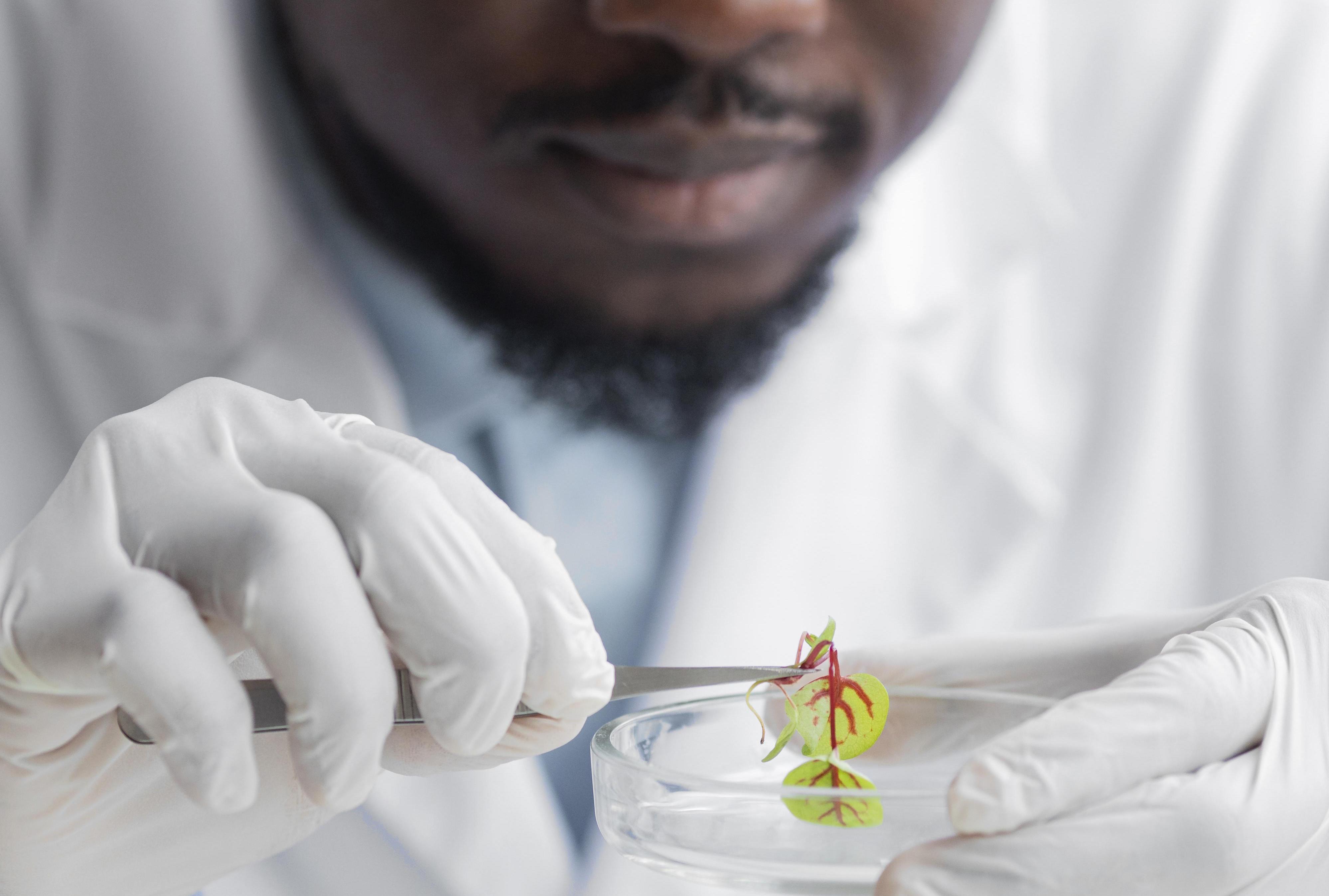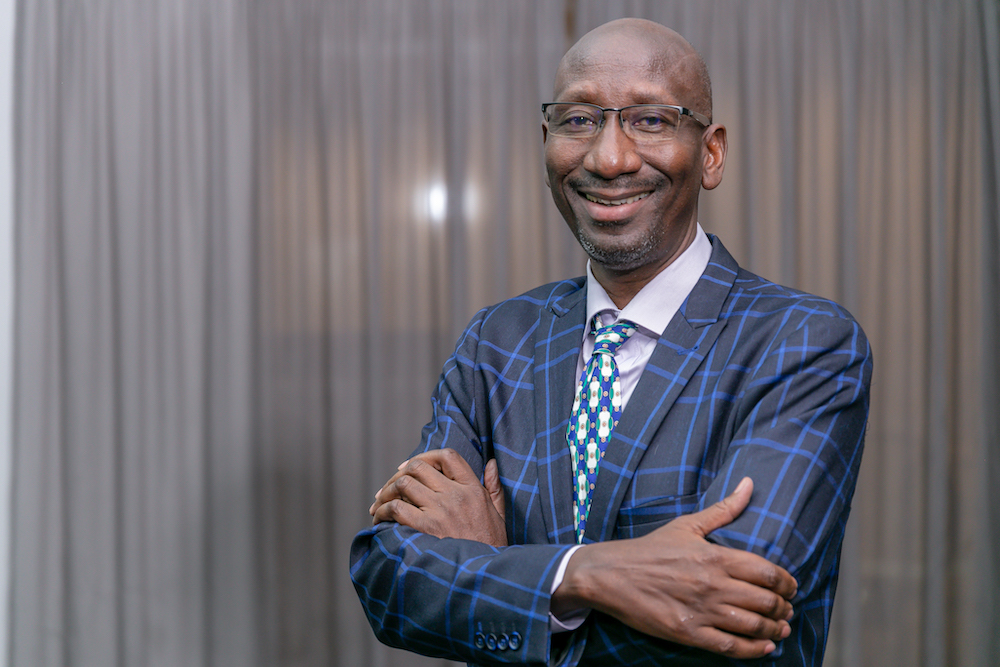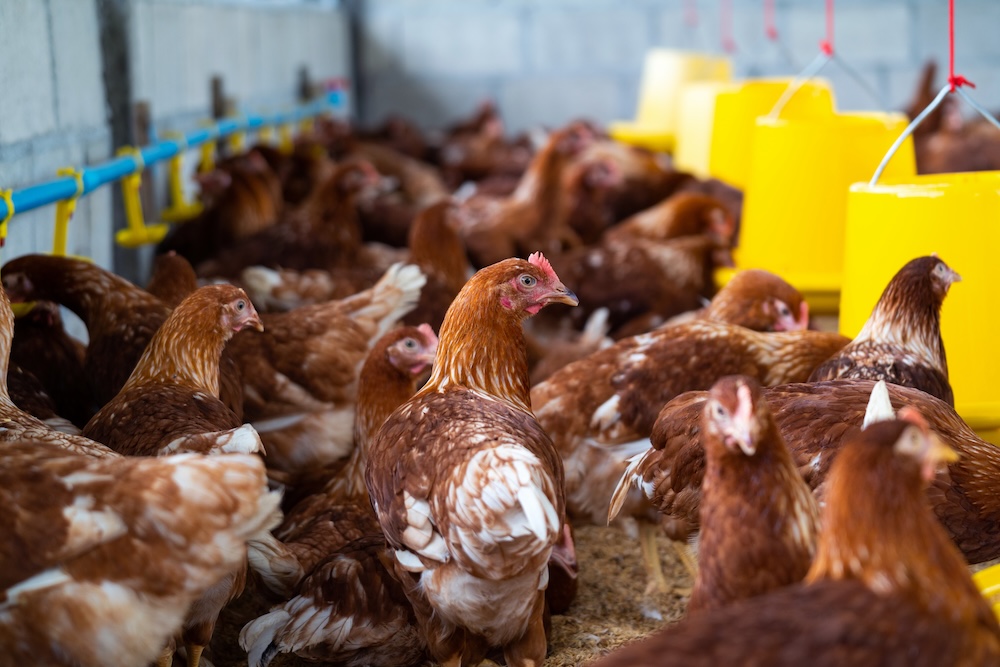
Impact Stories
From promise to policy: Empowering young African researchers to shape the continent’s pandemic preparedness
Wednesday, September 10, 2025
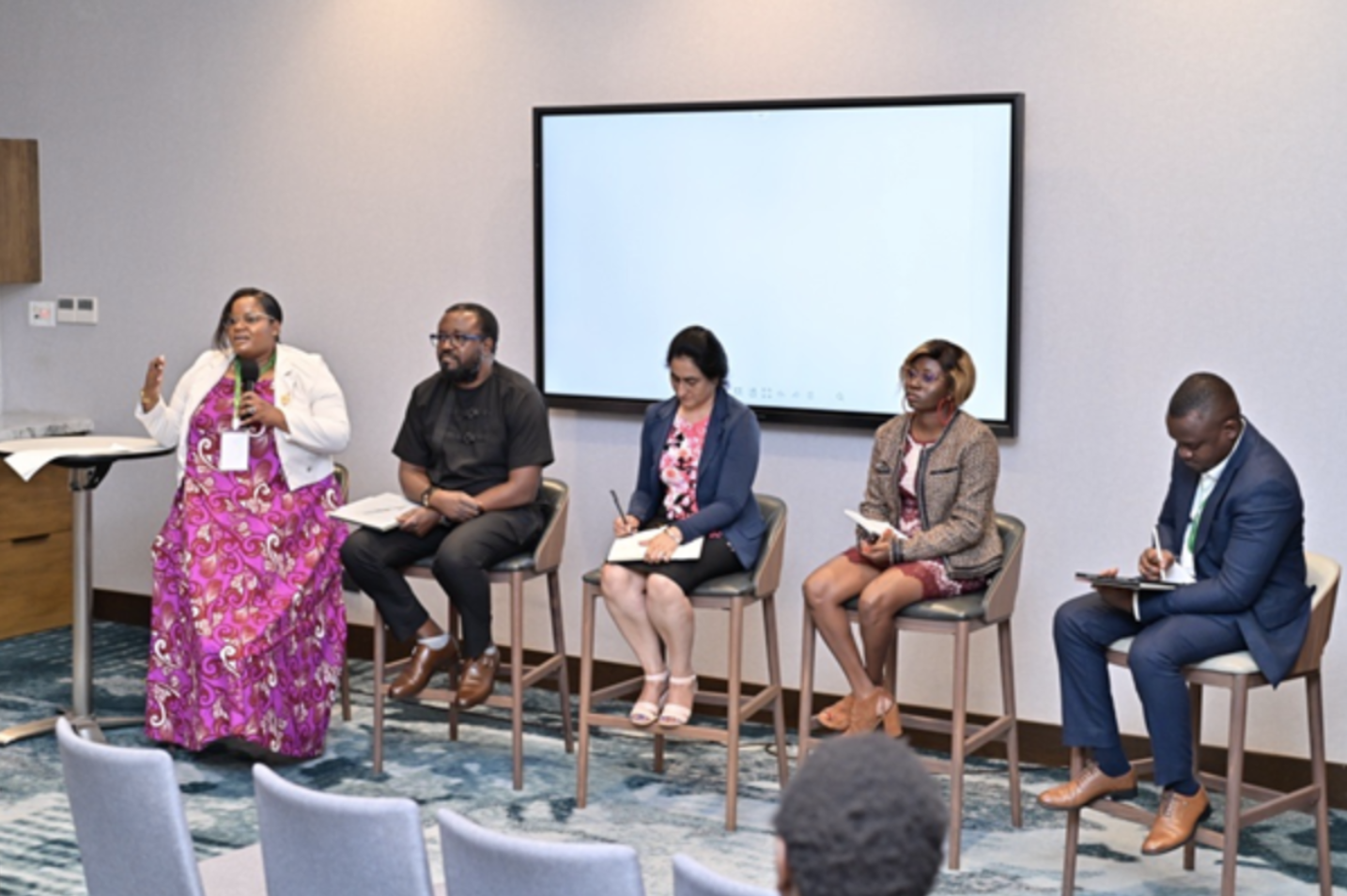
She sat and spoke before a packed room, her voice calm but resolute.
As one of the youngest panellists at the 2025 Annual Policy Forum held in Nairobi, Kenya, Merville Essetcheou sat alongside seasoned public health experts and leaders from institutions like the Africa CDC and Zambia’s National Public Health Institute to explore what it really means to be prepared for the next health emergency.
Discussions ranged from the critical role of domestic funding for research, to the importance of inclusive agenda-setting and the urgency of addressing capacity gaps. Panellists also called for a shift from a vaccine-centric preparedness model to a more comprehensive approach - one that embraces diagnostics, treatment, and innovation, including intellectual property reforms that support African-led solutions.
Reflecting on her experience as a young researcher, Merville gave voice to the struggles she has faced; the struggle to access quality data, the difficulty of being heard in policy spaces dominated by more experienced voices, and the constant balancing act of learning while leading. Yet, she also spoke of hope - the kind built on networks of support, mentorship and the unwavering belief that African researchers should be shaping African policy.
Hailing from Benin, Merville is a PhD biostatistics candidate specialising in infectious disease modeling at the University of Abomey-Calavi, Benin. Her research focuses on non-vaccine interventions and malaria dynamics in West Africa, applying advanced statistical methodologies to inform disease control strategies.
“Practical relevance must be the focus for research by bridging national and regional priorities. Knowledge translation officers need to be empowered to bridge the research-policy gap,” mentioned Merville Essetcheou.
For many in the room, this was just another panel.
For Merveille, it was a defining moment.
Her story isn’t unique. It mirrors the experiences of other four young, talented and determined researchers from across the continent selected to take part in the first cohort of an Individual Policy Exchange Programme (iPEP) fellowship. The iPEP fellowship is an initiative of the Africa Pandemic Sciences Collaborative and seeks to enhance the adoption of evidence from science into policy by promoting cross-working of young researchers and policymakers from institutions across Africa that are engaged in the complete range of epidemic and pandemic-related research.
The panel wasn’t just about exchanging ideas. It was about recognition – recognition that young professionals like Merveille are not future leaders; they are leaders today.
Empowering for Influence and Growth
Hosted alongside the inaugural Evidence for Development (Evi4Dev) Conference, the Annual Policy Forum was an initiative of the Africa Pandemic Sciences Collaborative. The forum served as a vibrant platform to connect policy, science and leadership through a series of curated engagements designed to amplify African voices in pandemic preparedness.
At the core of the Collaborative’s efforts lies a deep commitment to mentoring and equipping Africa’s emerging generation of scientists and policy leaders. This is where the Individual Policy Exchange Programme (iPEP) shines. Merveille and her peers are part of this programme, which provides young researchers with opportunities to connect their work to real-world policymaking.
During the Annual Policy Forum, these five young researchers participated in breakfast mentoring sessions. Over coffee and conversation, the iPEP fellows presented their projects to senior scientists and policymakers from different professions, cadres and nationalities, before rotating across ‘speed tables’, receiving individualised appraisal of their projects. They received pointed feedback – not just about sharpening their research focus, but on changing their mindset from a research-oriented focus to a more strategic policy influencing approach – how to communicate effectively, tailor recommendations, and be strategic about policy influence.
The format was personal, inclusive, and practical – even allowing for French-speaking participants to present and engage in their preferred language.
More than a networking event, this session created a feedback loop between early-career researchers and decision-makers. The insights gathered here will inform the design of future iPEP cohorts, ensuring that the programme continues to meet the real needs of its participants and the policy spaces they aim to influence.
Looking Ahead
The Mastercard Foundation’s support for the iPEP programme is part of its broader Young Africa Works strategy, which aims to enable 30 million young Africans - 70% of them young women to access dignified and fulfilling work by 2030. The Africa Pandemic Sciences Collaborative advances this goal by nurturing the next generation of scientists, innovators, and policy leaders to shape Africa’s public health future.
Merveille’s experience in Nairobi is a powerful example of how thoughtful investment in talent yields returns in policy, health, and long-term development.
For Merveille and her fellow iPEP researchers, the 2025 Annual Policy Forum was more than just a conference. It was a launchpad. A proving ground. A powerful example of how thoughtful investment in young talent yields returns in policy, health, and long-term development of cross-generational leadership. A space where their voices were heard, their ideas refined, and their leadership affirmed.
As Africa strengthens its pandemic preparedness, it will need not just better systems – but bolder minds. Minds like Merveille’s, ready to lead.
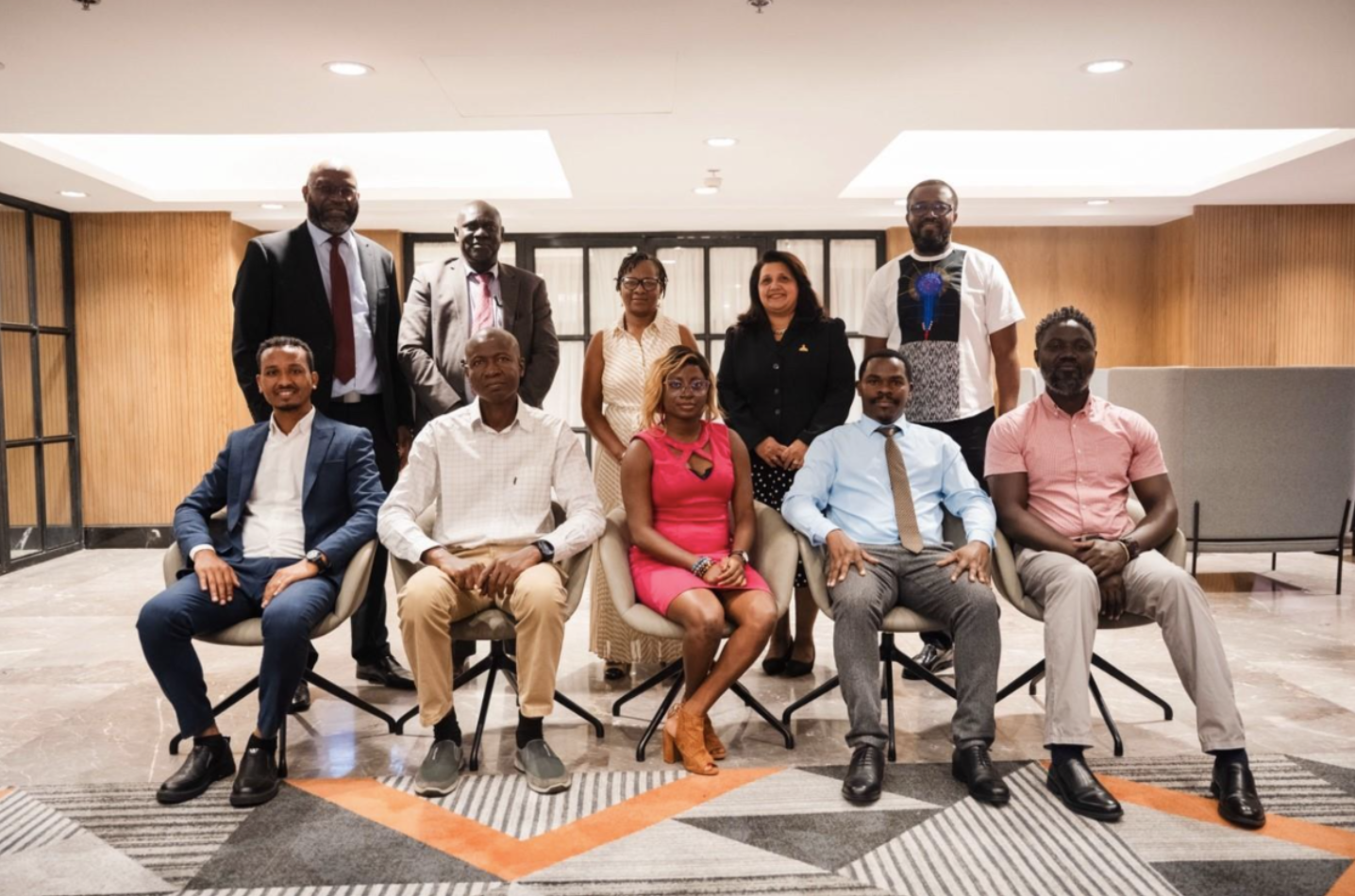
iPEP fellows take a front row seat as they pose for a photo with senior scientists and mentors at the Annual Policy Forum.
